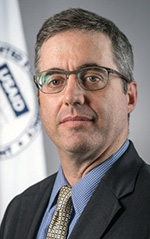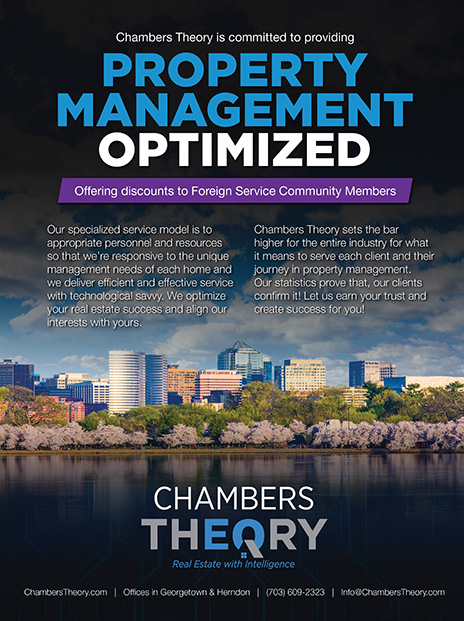Federal Unions and USAID: The Challenge for AFSA
A second-generation USAID FSO and AFSA vice president explains why the USAID Foreign Service needs a union and lays out workforce challenges facing the agency today.
BY JASON SINGER
“Why in the world would the Foreign Service need a union?” This is a question I am asked occasionally, as unions are not generally associated with globe-trotting diplomats and development experts, and too many individuals (inside and outside government) wrongly believe FSOs lead lives of glamour on the taxpayer’s dime. To be fair, as USAID FSOs we are lucky, and we are grateful for the privileges we have as career public servants with the agency. But a Foreign Service career brings unique personal and professional challenges and places demands on us and our families that become no less exacting over time; just the opposite.
Since July 2019, I have served as AFSA’s vice president for USAID, representing the agency’s more than 1,850 career Foreign Service (FS) officers and more than 400 non-career Foreign Service Limited (FSL) appointees. On the occasion of AFSA’s 50th anniversary as a union, I want to share a few thoughts on the value of AFSA’s role and the status of AFSA-USAID relations, including a few examples of problems that need to be addressed.
We juggle and struggle to do our work, advance our careers, care for our families at home and abroad, navigate (or sometimes hack through) the bureaucratic thicket, and maintain positivity. We are ever mindful of the trust and responsibility we carry, not just on behalf of our country writ large but our friends, neighbors, and communities, and those we seek to support. We want to focus on our work and the agency’s mission, confident that the agency has our back when it comes to our welfare, careers, and conditions of employment. We strive to sustain hope that the oft-cited mantra, “Our people are our most valuable resource,” is more than a talking point in periodic testimonies and town halls.
But regardless of agency rhetoric, policy, or good intentions, FSOs do find themselves in need of counsel, support, help, and advocacy, both as individuals and as part of the career Foreign Service. So, while USAID is not a textile factory floor, and I bear little resemblance to Norma Rae, there is no doubt that AFSA’s dual roles—as a union for individual officers and as an advocate for the Foreign Service as an institution—are both warranted and valuable.
AFSA’s Role as the Voice of the Foreign Service
Nearly 80 percent of all active-duty Foreign Service members join AFSA (above 80 percent for USAID!), in addition to thousands of retired members. AFSA helps with virtually any issue its members confront—security clearances or violations, denial of tenure, employment-related performance evaluation, discipline/selection-out, pet travel, divorce, career counseling, and equal employment opportunity (EEO) and disciplinary processes. At USAID, AFSA also counsels members on the agency’s still-new promotions process, work-life balance, pregnancy, divorce, adoptions, curtailments, extensions, assignments, allowances, evacuations, leave and benefits issues, and so on—the life of an FSO is not simple! Foreign Service members need a union, and AFSA is proud to represent them.
AFSA’s role as “the voice of the Foreign Service” remains critical at USAID, where the influence and authorities of the Foreign Service have severely declined. Though USAID remains a foreign affairs agency, it no longer operates or staffs itself as an institution led by and centered on its Foreign Service. There are many reasons for this: the proliferation of Washington-driven initiatives; communications advancements extending the long arm of a predominantly non-FS Washington bureaucracy farther and faster afield; and the failure to define and support FS career pathways.
At USAID, the Foreign Service is too often treated simply as one among the agency’s many “hiring mechanisms,” with leadership failing to invest in FSOs as career public servants—and to be very clear, the Foreign Service is designed as a career service. Incentives matter, and USAID does not offer the appropriate career motivations needed to overcome the financial costs associated with a Washington, D.C., tour. The agency often claims that FSOs aren’t “stepping up” to bid on Washington jobs, but at the same time, it limits or rejects extensions to Washington tours for FSOs—in large part because of a chronic FSO shortage. And, unlike State, USAID does not place senior FSOs in key operational and management positions such as head of the Management Bureau, assistant to the Administrator for human capital and talent management (HCTM), or chief human capital officer (CHCO).
The net result is a USAID headquarters where not only career General Service (GS) and career FS employees are the minority in many bureaus, but the technical expertise, field perspective, and hard-won mission experience of FSOs are too often either dismissed or simply drowned out. This diminishes the USAID Foreign Service as an institution. The proximate cause for this is USAID’s long-standing lack of strategic workforce planning coupled with its outdated bifurcated budget structure.
As reported in the May 2022 OIG report, “Strategic Workforce Planning: Challenges Impair USAID’s Ability to Establish a Comprehensive Human Capital Approach,” USAID has worked for decades “to improve the efficiency and efficacy of its strategic workforce planning, yet despite these attempts, human capital management has remained one of the Agency’s top challenges.”
The agency is addicted to bureaucratic workarounds; it has consistently failed to invest authority, money, and staff in HCTM; and its budget complexities are coupled with sometimes opaque and questionable practices favoring non-career mechanisms.
AFSA, USAID, and Labor Dilution
Decades of hiring workarounds and the agency’s patchwork, fragmented, and seemingly ad hoc approach to strategic workforce planning have diluted USAID’s career employee workforce, complicating operations, management, and agency-union relations. USAID employs thousands of colleagues in Washington, D.C., and around the world, under temporary appointments and limited-term contracts including Foreign Service Limited (FSL) appointments, personal service contracts (PSCs), institutional support contracts (ISCs), or other time-limited mechanisms. As career employees shrink in proportion within the overall agency workforce, so too has the “voice” of the Foreign Service within USAID and the strength of AFSA and other federal unions representing career public servants.
And so I welcomed the Biden-Harris administration’s focus on career public servants, including Executive Order 14003’s declaration: “It is the policy of the United States to protect, empower, and rebuild the career Federal workforce.” The president describes that workforce as “providing the expertise and experience necessary for the critical functioning of the Federal Government.” Rebuilding the career workforce at USAID is long overdue but, as the president affirms, critical.
Though USAID remains a foreign affairs agency, it no longer operates or staffs itself as an institution led by and centered on its Foreign Service.
To her credit, Administrator Samantha Power called out these workforce shortcomings in her November 2021 speech, “A New Vision for Global Development.” USAID has created unsustainable workarounds to fill staffing shortfalls, she acknowledged—some 90 percent of our positions in our Global Health, Humanitarian Assistance, and Conflict Prevention and Stabilization bureaus are on short-term contracts. “To this end, we will seek to increase our career workforce over the next four years,” she vowed. “To build a brighter future, we need to staff our agency for the future.”
The agency’s “Transforming the Workforce Report to Congress 2022” further affirms the problems facing the agency vis-à-vis career employees, though it does not offer robust solutions: “USAID has long relied on a range of term-limited, non-career, and often NDH [non-direct-hire] mechanisms to staff needs that are not limited in duration. Those positions have included climate scientists, civilian-military liaisons, nutrition specialists, elections specialists, program managers, epidemiologists, and long-term institutional support for humanitarian assistance.
“This reliance on a hodge-podge of non-career and term-limited mechanisms … puts at risk the institutionalization and oversight of some of the Agency’s highest-priority initiatives. For too long, we have relied on USAID’s creative approaches to meet our staffing needs amid growing program budget and responsibilities. This has resulted in costly inefficiencies and staff who are working side-by-side under managers who must deal with different pay, benefits, and performance systems.”
Shocking numbers and welcome words. Happily, the agency and Congress have modestly increased USAID’s Fiscal Year 2022 OE budget to hire additional career employees with commitments for more—let’s hope! And yet, the agency is increasing hiring of non-career staffing mechanisms at a faster rate, further diluting and unbalancing the career cadre—a far cry from the president’s policy to “protect, empower, and rebuild.” AFSA is tirelessly working to advance the president’s agenda within the agency and work with agency colleagues to translate USAID’s own commitments into action.
A Tale of Two Administrations
I have served as AFSA VP under two administrations that are on opposite ends of the labor-management spectrum, at least rhetorically. Under the previous administration, despite a White House that issued anti-union executive guidance and sought to end the country’s nonpartisan Civil Service, AFSA enjoyed solid, respectful, and often productive relations with the previous USAID leadership.
Indeed, then–USAID Administrator Mark Green and his front office team neither touted the talking points nor leaned into many of the anti-union and anti-employee actions pushed by the White House. To be sure, it was no golden age of labor-management harmony, but agency leadership consulted with employees, valuing their professional technical skills, field knowledge, and perspectives as development professionals. USAID Inspector General findings on workforce concerns were acted on quickly, and a historic agency reorganization was informed and influenced through union consultations.
The counselor, the agency’s highest-ranking career employee, was treated as an integral part of the front office team, and was regularly present, active, and respected in leadership fora and in helping to shape institutional change. There was even historic progress in advancing integration of career Foreign Service and Civil Service employees into those challenging bureaus cited by Administrator Power, i.e., the contractor strongholds of the Bureau for Humanitarian Assistance and the Bureau for Conflict Prevention and Stabilization, with commitment to future progress. Remember, this all took place under an administration that sought to implement “Schedule F,” a new employment classification system that would have transferred thousands of career public servants into a new job category where they would lose much of their Civil Service protections, becoming de facto “at-will” workers.
Fast forward to 2021 when, on his second day in office, President Joe Biden issued Executive Order 14003, “Protecting the Federal Workforce.” This was followed by additional extensive direction to executive agencies, including the February 2022 report “White House Task Force on Worker Organizing and Empowerment.” That report stated: “When federal employees organize a union, they should have an effective voice in workplace issues through their union, and federal management should work closely with these unions to solve workplace issues in a manner that advances agencies’ missions and produces high-performance workplaces.” The White House continues to issue complementary guidance.
And yet the current USAID front office has never overtly acknowledged President Biden’s employee- and union-focused executive order and, in fact, rapidly took a number of actions more in line with a Schedule F agenda. For example, the agency created and filled a new political position, the “Assistant to the Administrator for Human Capital and Talent Management,” overseeing the CHCO and HCTM. This action raised both eyebrows and questions: Why would USAID, particularly under the Biden-Harris administration, politicize the career federal workforce? Indeed, as one concerned coalition expressed to Congress, “If government employees owe their jobs more to personal or political allegiance rather than merit, they will be more beholden to the party in power instead of the law of the land.”
Further, the agency boasts very few FSOs in its most senior Washington positions, dampening the FS field perspective and contributions both inside the agency and in the interagency (see AFSA’s tracker of senior appointments, which also highlights USAID’s current paucity of career FSOs in senior USAID HQ roles). In contrast, both State’s under secretary for management and Director General of the Foreign Service/Director of Global Talent are career FSOs; presumably, State leadership believes a foreign affairs agency benefits by having nonpartisan, career FSOs leading management and human capital operations.
Shoots of Hope and Seeds of Change
This administration and current agency leadership certainly did not create all of these challenges, most of which require long-term solutions—structural, budgetary, policy-based, operational, and cultural. And while I am appreciative of the dialogue and engagement with agency counterparts at all levels, I remain highly concerned that USAID leadership refuses to actively and openly embrace and act on the president’s clear mandate vis-à-vis unions and career public servants: To rebuild. To empower. To protect. Yes, this will be difficult, but since when did USAID shy away from difficult?
For 50 years, AFSA has defended our members and advocated for a strong, nonpartisan career Foreign Service, always seeking opportunities for collaboration while never shirking our duty. And now, AFSA and the agency have a unique and unprecedented opportunity to collaborate, breaking from a past that prompted the OIG May 2022 audit: “For nearly 30 years, USAID has worked to improve the efficiency and efficacy of its strategic workforce planning, yet despite these attempts, human capital management has remained one of the Agency’s top challenges.” I am ever hopeful that similar words will not open the OIG’s 2030 report. And I am ever confident that if they do, AFSA will be there to help defend its members. Thank you for your service.
When sharing or linking to FSJ articles online, which we welcome and encourage, please be sure to cite the magazine (The Foreign Service Journal) and the month and year of publication. Please check the permissions page for further details.
Read More...
- “AID’s First Year” by Frank M. Coffin, The Foreign Service Journal, January 1963
- “USAID: Signs of Growth” by Shawn Zeller, The Foreign Service Journal, January 2010
- “USAID at 60: An Enduring Purpose, a Complex Legacy” by John Norris, The Foreign Service Journal, November 2021






